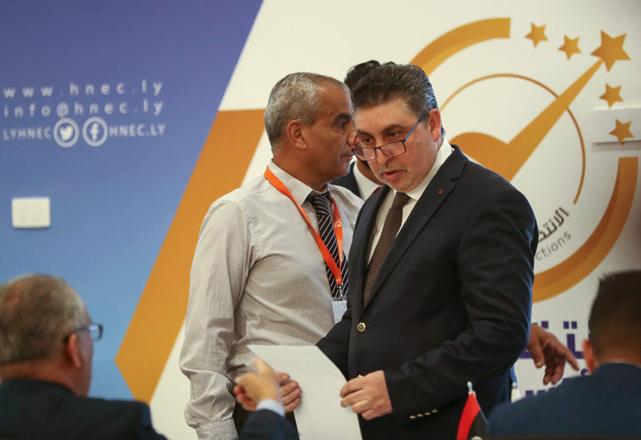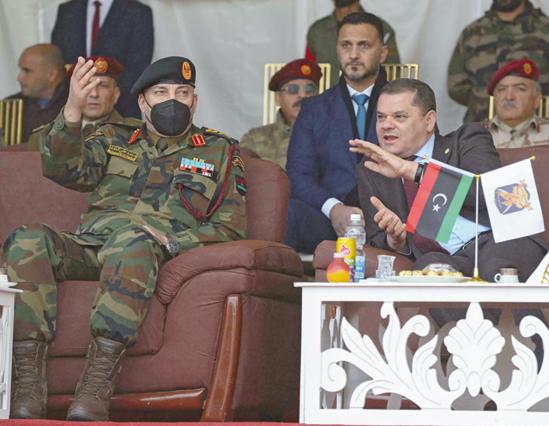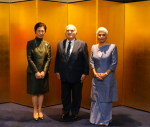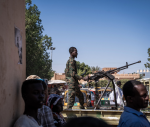You are here
Libya’s PM Dbeibah registers for presidential bid
By AFP - Nov 21,2021 - Last updated at Nov 21,2021

Former Libyan prime minister of a previous Tripoli-based government Khalifa Al Ghweil registers his candidacy for next month’s presidential election on Sunday in the capital Tripoli (AFP photo)
TRIPOLI — Libya’s Interim Premier Abdulhamid Dbeibah registered his candidacy on Sunday for next month’s presidential election, joining a list that includes a son of slain dictator Moamer Kadhafi and a military strongman.
Libya’s first ever direct presidential poll, due on December 24, comes as the UN seeks to end a decade of violence in the oil-rich nation since a NATO-backed uprising that toppled and killed Kadhafi in 2011.
Dbeibah signed documents at the HNEC electoral commission in the capital Tripoli, in footage broadcast live by state television, the day before the deadline for registration.
“It is a historic and decisive day. I came for the homeland and the unity of the homeland,” said Dbeibah, the 57th candidate to register for the vote.
“We have started this journey together, we will end it together,” he added, promising “no more wars”.
A wealthy businessman from the western port city of Misrata, the 62-year-old political newcomer was designated as interim prime minister in February in a UN-led process, to steer the country to legislative and presidential elections.
Libya’s parliament speaker Aguila Saleh, eastern strongman Khalifa Haftar and Seif Al Islam Qadhafi, son of Libya’s late leader, have also signed up to run for the presidency.
Both presidential and legislative polls had been slated for December 24, but in early October parliament split the dates of the vote by postponing legislative elections until January.
The path to the ballot box has been lined with disputes over the constitutional basis for the polls and the powers to be given to whoever wins.
In September, parliament speaker Saleh outraged opponents by ratifying a contentious electoral law criticised for bypassing due process and favouring a bid by Haftar.
Later that month, parliament passed a no-confidence vote in Dbeibah’s government.
That move, said Claudia Gazzini, a Libya expert with the International Crisis Group, could work in Dbeibah’s favour because he was not supposed to make a bid for the presidency.
“He had promised during negotiations with the UN that he would not be a candidate and the electoral law stipulates that candidates must not hold official posts three months before the vote,” she said.
“Based on certain legal interpretations, he has been [de facto] suspended from his post by the no-confidence vote,” she added.
On Saturday, Dbeibah denounced a “tailor-made” electoral law ratified by Saleh — who like Haftar had quit his official post in September in order to vie for the presidency.
Libya expert Jalel Harchaoui said Dbeibah’s candidacy is bound to have a “huge psychological impact on his opponents”.
“Their anger could play into his hands,” if for example, “his rivals had recourse to violence” or if the electoral process collapses, he added.
Related Articles
BENGHAZI, Libya — Libya’s parliament announced on Monday it would meet next week to pick a replacement for interim Prime Minister Abdelhamid
BENGHAZI, Libya — Libya’s parliament on Monday began hearings of hopefuls to replace interim Prime Minister Abdulhamid Dbeibah, a process th
TRIPOLI — Libya’s interim Prime Minister Abdulhamid Dbeibah on Sunday called for a constitution to be established before holding delayed pre















